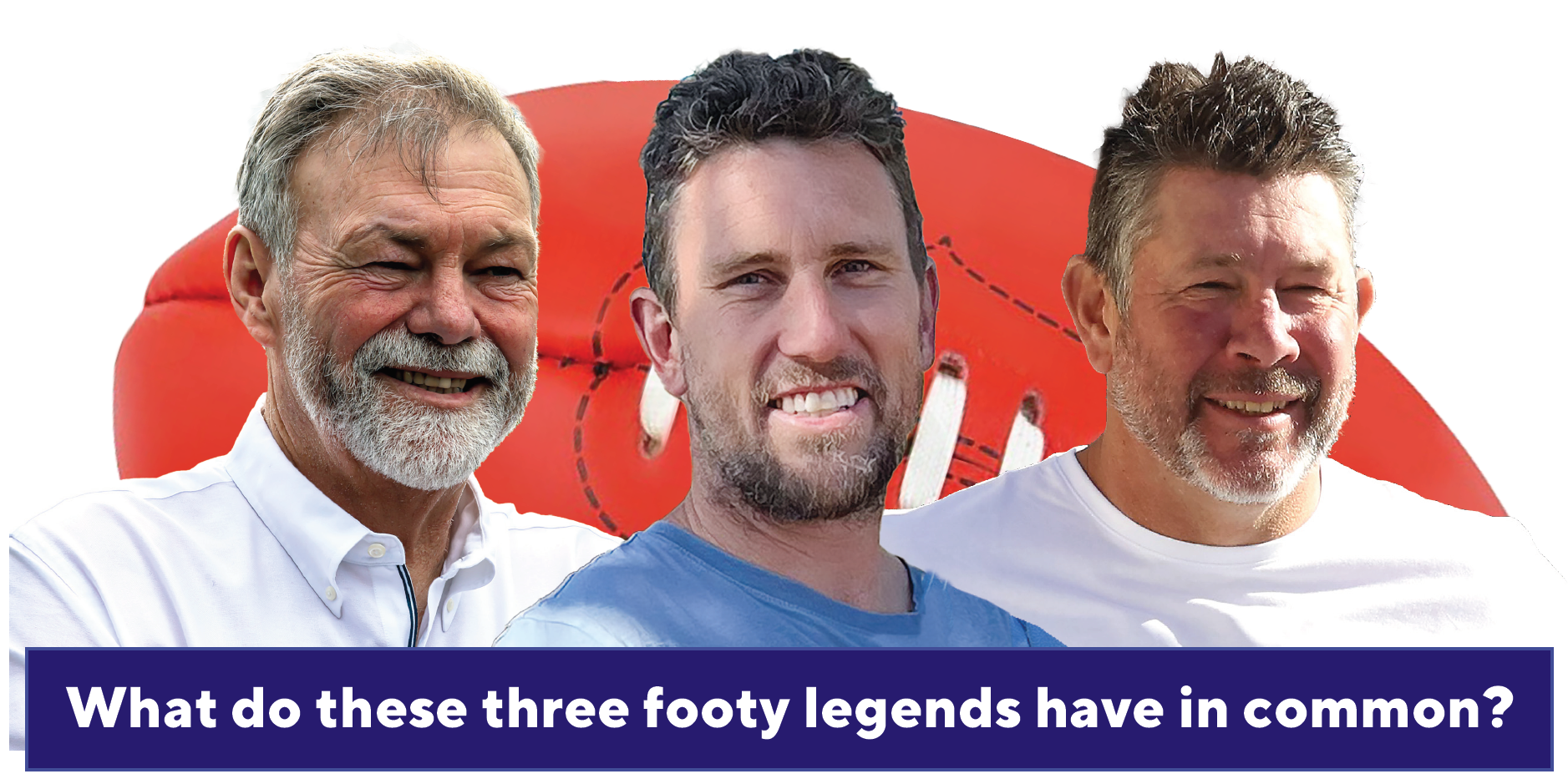They live with epilepsy.
An unpredictable condition that can
turn your life upside down.
Affecting 1 in 25 Aussies.
Will you join the team and be on
their side?
Epilepsy can happen to anyone, any time, at any stage of their lives.
Just like it has for Neil.
And it can impact family, friends, colleagues of Aussies who care for someone diagnosed with epilepsy.
Just like it has for Heath and Brett.When you choose to donate, you’ll be giving a family, like Heath’s and Luisa’s the complete and comprehensive care they’ll need from the Epilepsy Foundation.
When you choose to donate, you’ll help:
 Give them the life-saving tools, epilepsy management plans and support they need.
Give them the life-saving tools, epilepsy management plans and support they need.
 Provide education and training to schools, workplaces, community groups and footy teams
Provide education and training to schools, workplaces, community groups and footy teams
 Fund ground-breaking research into better programs, treatments,
Fund ground-breaking research into better programs, treatments,
even a cure.
With more people diagnosed every day, your support is vital.
Epilepsy doesn’t discriminate and it doesn’t care which footy team you barrack for. But you can be the difference for a person diagnosed with epilepsy.
Join the team. Show your support.
Grunting, shaking, grinding teeth…the symptoms of a seizure.
Epilepsy came into mine and my wife’s lifeout of nowhere. It was 2020, during Covid. I was considering taking a big job in footy inAdelaide. I wasn’t looking after myself. I wasn’t sleeping well. I was anxious about the possibilities in front of me.
Then one night, as Carmel and I were sleeping, I started grunting like a koala, grinding my teeth and shaking. Carmel was terrified. She didn’t know what was going on. I was out of it. The only thing I remember is waking up in the ambulance. Later I was diagnosed with epilepsy.
No one really knows why 1 in 25 people getepilepsy. Most people don’t want to talk about it. But I can tell you, you’re better off getting it out there. You’re not going to fix it by denying it.
So, I started talking to the Epilepsy Foundation. It became clear I could help get the message about living with epilepsy out there. To not be scared of having this condition.
 |
Together we can find ways to help support those who have epilepsy. |
It was a really hard and painful time.
Our son, Roman, came into our lives right in the middle of COVID. He was a happy, cheeky and confident baby.
And then it all changed. When Roman was 6 months old, it looked like he was stargazing, stunned and watering eyes. Four weeks later we started to see signs of seizures. We rushed him to the hospital. Our son was hooked up to machines and instruments. Scans, blood tests, discussions with doctors and specialists. A week later we were told he has Infantile Spasms. We didn’t even know those words.
Our son was having at least one seizure everyday. Thoughts raced through our minds. Will Roman have to deal with stigma? Will he be accepted? Will he be okay?
Roman was put on steroids. Slowly he became his cheeky, happy self again. It’s been 3 years since he had a seizure, but epilepsy will always be a part of our lives.
 |
You can help a family get the support they need as they face one of the most difficult times in their lives – their child diagnosed with epilepsy. Please give to the Epilepsy Foundation. |
Driving to the press conference we got a call that changed our lives…
My daughter Tilly would come into our bedroom in the middle of the night. It was like she was sleepwalking. She’d wake up and didn’t know where she was. She’d drop to her right side and black out. You could see it in her eyes.
Tilly’s diagnosis of epilepsy came the same day I got announced as St Kilda’s coach.
It’s quite challenging. The worry you have for your child. You’d get emails or calls from her school, when you come off the footy track, saying Tilly has fallen over, or it’s 9.30am and she’s asleep in class. It was challenging for the whole family. Tilly would experience sometimes up to 30 seizures a day. After trialling a medication, she gained control of her seizures.
I think about the 1 in 25 who have epilepsy.
My brother’s boy also has epilepsy.
 |
If we can create awareness that there are many people who have it, and they can get the support they need, and there is an amazing place like the Epilepsy Foundation for them, that’s critical. |




